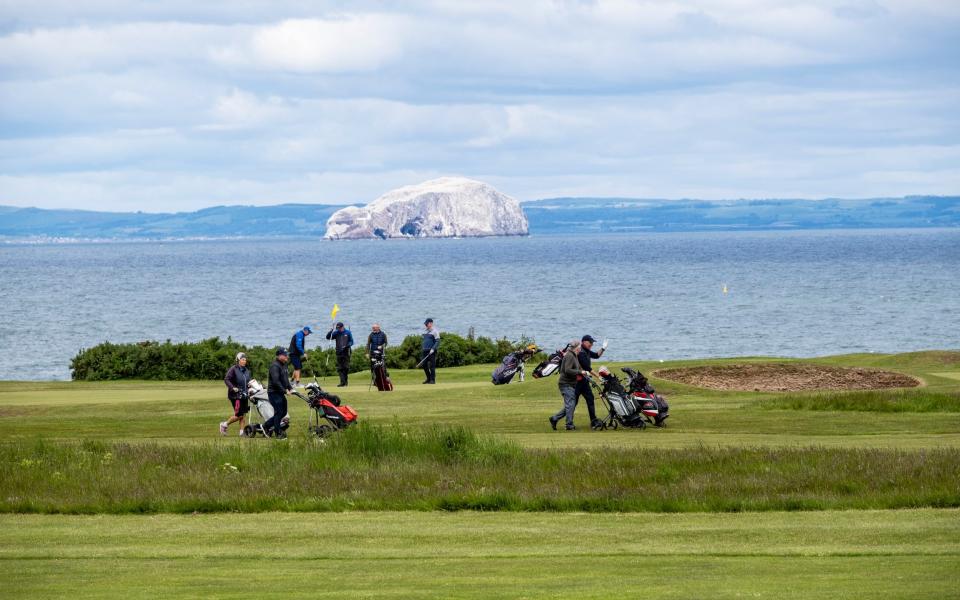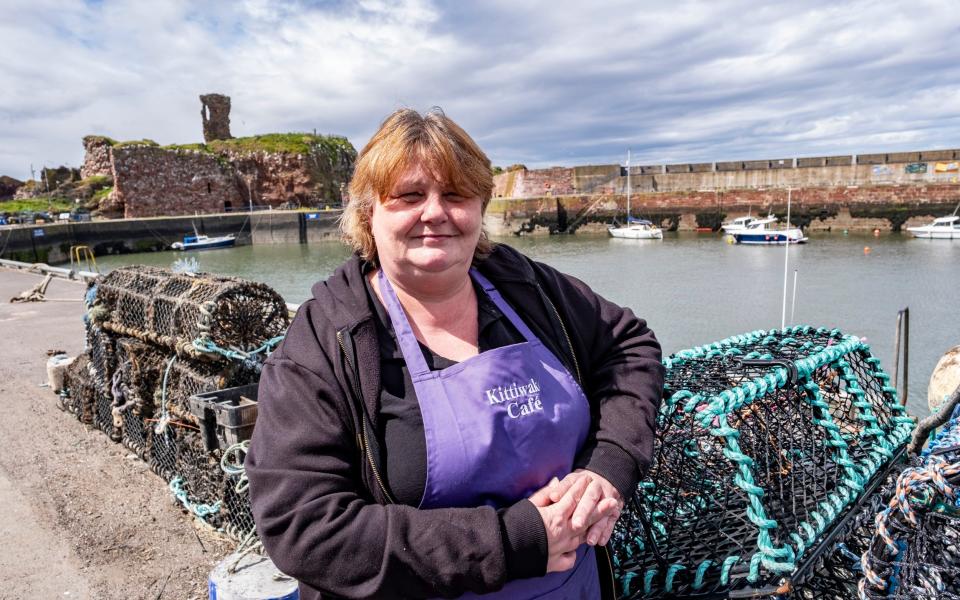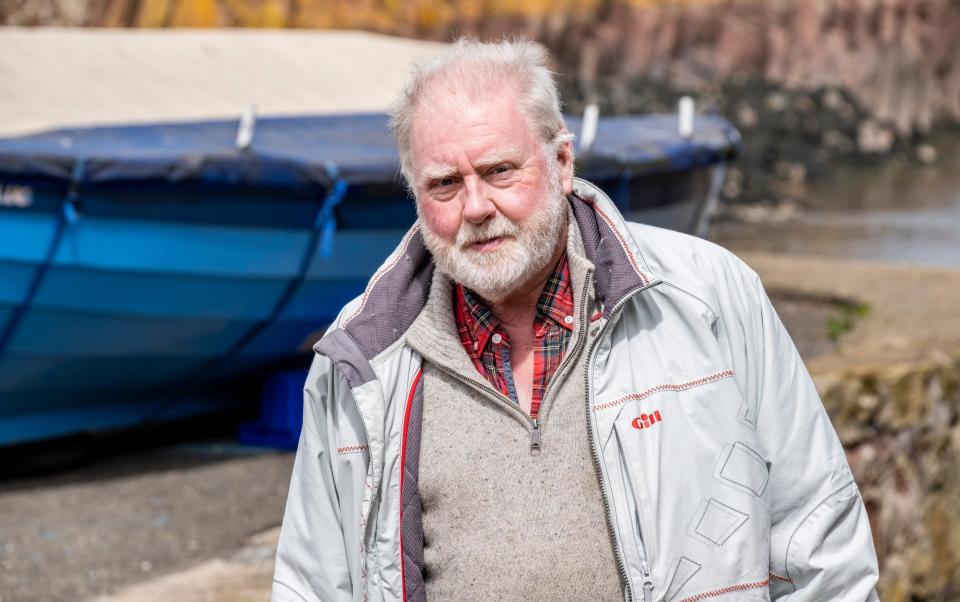Bellwether seat dispatch: Lothian East tells you everything about Labour’s mission to unseat the SNP

Each week, The Telegraph will be taking the temperature in key constituencies around the country whose result could point the way for how the country will vote in July’s election. This week, East Lothian.
There is not a lot of Dunbar Castle left. Once a strong and seemingly invulnerable fortress overlooking the Scottish town’s harbour, it is now reduced to ruins. As the July 4 General Election looms, the Scottish National Party (SNP) will be fervently hoping to avoid a similar fate.
But voters’ opinions in Lothian East – a newly named constituency that covers much of the same ground as the old East Lothian seat and current council area – won’t offer them much reassurance.
“I desperately don’t want the SNP,” says a lawyer on Dunbar’s High Street. “They’re just as bad [as the ruling Conservatives in Westminster], if not worse,” scoffs the owner of a harbour cafe. “I used to vote SNP, but won’t this time because of all the nonsense they’ve been up to,” adds a self-employed tradesman, whose cottage faces onto the grey-blue North Sea.
And so it goes on, with the nationalists receiving short shrift in Dunbar from those of varying political persuasions and backgrounds. Little wonder, perhaps, that Lothian East (which counts Dunbar as one of its towns) is Labour’s number one target seat in Scotland. If voters are disillusioned with the SNP – and they do appear to be – Labour is expected to reap the rewards, particularly here and in the rest of the so-called Central Belt.
In 2019, the SNP took what was then East Lothian from Labour, albeit with a majority of less than 4,000. Now, Labour looks set to reclaim not only this constituency but potentially dozens of others north of the border – a Scottish comeback that could prove key to a landslide victory.
Still, if any reminder were needed that all is still to play for, the 10-point lead Labour held over the SNP last month – which suggested they could win as many as 35 Scottish seats – looks to have shrunk slightly. An Ipsos survey carried out last week for STV found both parties level on 36 per cent support.
As for the Conservatives, things are going about as well for them in Scotland as in the rest of the country: the poll suggests they could be heading for electoral obliteration, with the loss of all six of their Scottish seats.
Why is it a bellwether seat?
East Lothian, in the south east of Scotland, used to be considered a safe Labour seat. But the 2015 general election changed everything: the SNP claimed a massive landslide victory, winning 56 out of the 59 Scottish constituencies (including East Lothian) and reducing the party then led by Ed Miliband to just a single foothold. Scottish independence had a lot to do with it – many one-time Labour voters backed it, while the party did not.
In 2017, Labour reclaimed East Lothian as the vexed question of a second independence referendum turned some voters away from the SNP – only to lose it again to the nationalists two years later. Sir Keir Starmer’s party currently holds just two Scottish Parliamentary seats. However, one of these was gained in a comfortable by-election victory in Rutherglen and Hamilton West in October.
The result saw a swing of 20.4 per cent from the SNP to Labour, which was hailed by Starmer as “seismic” and cautiously greeted as a sign that the party was winning back the trust of Scottish voters. What happens in Scotland on July 4 will confirm whether it has truly succeeded in this endeavour – and will play an important part in determining the extent of any overall Labour victory.

So, what has changed since the party came a humiliating fourth in Scotland in 2019? Its position on independence remains the same (it is still opposed). But the SNP has experienced a bruising few years. An investigation into its finances has cast an inescapable shadow over its time in power in Holyrood. Peter Murrell, former SNP chief executive, was charged in April in connection with the embezzlement of funds, while his wife Nicola Sturgeon, former SNP leader and First Minister, was arrested and released without charge.
Since Sturgeon resigned last year, the party has cycled through leaders at a speed only rivalled by the Conservatives. Her replacement, Humza Yousaf, stepped down in May and veteran parliamentarian John Swinney took over. But Swinney’s supposed safe pair of hands may not be quite secure enough to steady the ship. Support for the SNP has been dented by a raft of unpopular policies that some claim were forced on them by the Greens, with whom they forged – and then terminated – a power-sharing deal in the Scottish Parliament.
“All the SNP is interested in is independence,” says Valerie Tear, who runs Kittiwake Cafe on Dunbar Harbour. Others feel this has come at the expense of focusing on day-to-day governance and improving Scotland’s infrastructure and services, including healthcare and education in particular. “My mum works in education and thinks the SNP has made it 10 times worse,” says the lawyer, 33, who doesn’t want to be named.

With the SNP adrift on a sea of troubles, a resurgent Scottish Labour led by Anas Sarwar, is optimistic of clawing back voters come polling day.
About the area
The East Lothian tourist board calls the area Scotland’s best-kept secret, quietly boasting more than 40 miles of coastline and swathes of rolling countryside. To the north of Dunbar, where fishermen still ply their trade in this former leading herring port, the town of North Berwick is popular among tourists and residents. Sitting within easy commuting distance from Edinburgh, the picturesque resort has regularly been named Scotland’s most expensive seaside town for property in recent years.
The region – which voted against Scottish independence in the 2014 referendum – is steeped in history. Inland, the former mill town of Haddington and current administrative centre largely retains its medieval street plan. Other towns include the former mining communities of Tranent and Prestonpans, while the small village of Athelstaneford is hailed as the birthplace of the Scottish flag, the Saltire.
Once largely agricultural with a local economy heavily dependent on farming, fishing and coal mining, tourism is now one of the leading industries here. The energy firm EDF, which operates Torness nuclear power station down the coast from Dunbar,is also one of the biggest local employers.
Who are the candidates?
Labour veteran Douglas Alexander will battle it out against the SNP’s Lyn Jardine, leader of the opposition on the Labour-run East Lothian Council. Alexander’s Parliamentary career dates back to 1997, when he became the MP for Paisley South. A key figure of the New Labour years and an ally of Gordon Brown, he served variously as International Development Secretary and Transport Secretary between 2006 and 2010, and also held a string of ministerial posts. If Labour comes to power next month, it is rumoured the 56-year-old could be handed a high-profile frontbench job.
Jardine meanwhile cut her teeth in local politics. She says she has been “consistently…encouraged by others to stand for office”. With sitting Lothian East MP Kenny MacAskill, a former Scottish Justice Secretary, defecting to Alex Salmond’s Alba Party in 2021 and now standing in a different constituency, Jardine hopes to defend the slim majority won by the SNP five years ago. The Electoral Calculus website rated her chances of doing so at seven per cent on Friday, while Labour is said to be 92 per cent likely to take the seat.
Also running in Lothian East – but with little likelihood of success – are Scott Hamilton for the Conservatives, Duncan Dunlop for the Liberal Democrats, Shona McIntosh for the Greens, George Kerevan for Alba and Robert Davies for Reform UK.
View from the high street
Dissatisfaction with the SNP is widespread. But there’s no obvious wave of fervent enthusiasm for any party. Some plan to vote Labour almost by default, for want of what they would call a better alternative. But plenty are still undecided – and uninspired.
Tear, 51, falls in the latter group. She would usually vote Conservative but “the last lot have put me off for life”. She expects she will probably vote Labour for the first time since Tony Blair was in power, to keep out the SNP.
“[The Tories] have completely lost touch,” she says from her kiosk. “I don’t think they’ve got a clue.” Eric Robertson is also undecided. The 68-year-old, who lives beside the harbour and renovates furniture for a living, doesn’t have much confidence in any of the options. “I’ll probably end up voting Green but I don’t trust them either,” he says.

Standing near stacks of lobster pots piled up beside the water, he admits he is wary of the Greens’ plans for fishing. These include controls on the type of fishing gear and harvesting levels allowed. “Which is a bit of a disaster for a harbour,” Robertson reflects, as tourists wander past, and gulls scream overhead. The sun emerges from behind the clouds and, just as quickly, disappears again.
Robertson has previously voted for both Labour and the SNP, but doesn’t think much of either any more. Still, if the SNP’s record in Scotland has “not been brilliant”, it has at least been better than the Tories’ record at Westminster, he reasons. “Rishi Sunak is saying he’ll reduce taxes,” he says. “But what we need is to put taxes up to improve public services.”
The SNP tried this in Scotland, introducing a new band of income tax in April for those earning more than £75,000, while anyone earning £28,867 or more now pays more than someone earning the same elsewhere in the UK. It’s fair to say this move has not been universally welcomed.
“The fact I pay more tax than someone 30 miles down the road in [the English town of] Berwick-upon-Tweed is insane,” fumes a Tory-voting woman in her 40s on Dunbar’s High Street. In Haddington town centre, father-of-three Dylan Berrill, a 50-year-old mental health nurse, expects he will stick with the SNP. “I still want independence,” he says.
What are the burning local issues?
“[We need] more affordable housing,” says Green Party voter Rebecca Foster, 41, an office assistant, who is walking down Haddington high street with her eight-year–old daughter. “There’s a lot of new builds going up but they’re quite extortionate. It’s hard for anyone to get on the property ladder.” More community centres with services for young children would also help, she suggests.

The lack of a bank in Dubar is mentioned by several locals. And the cost of living crisis has bitten here too. “Our food bank is constantly used,” says Tear.
By early afternoon, the fishermen, who were busy at Dunbar harbour in the morning, have disappeared for the day. The once-booming herring industry long gone, their focus now is on prawn trawling, lobsters and crabs.
“They aren’t having a good time,” says Robertson. “The weather’s been horrendous. We had one of the largest fleets. Now we have six boats up for sale and no-one wants to buy them.”
The political weather has also darkened for the incumbents here. As elsewhere, there’s a sense that it’s time for a change. As Haddington-based school welfare officer Alison Swallow, 53, reflects: “The general consensus is [the SNP] have maybe not done what they promised they would. I like Labour’s policies. They’re fairer to my demographic of hard workers.”


 Yahoo News
Yahoo News 
